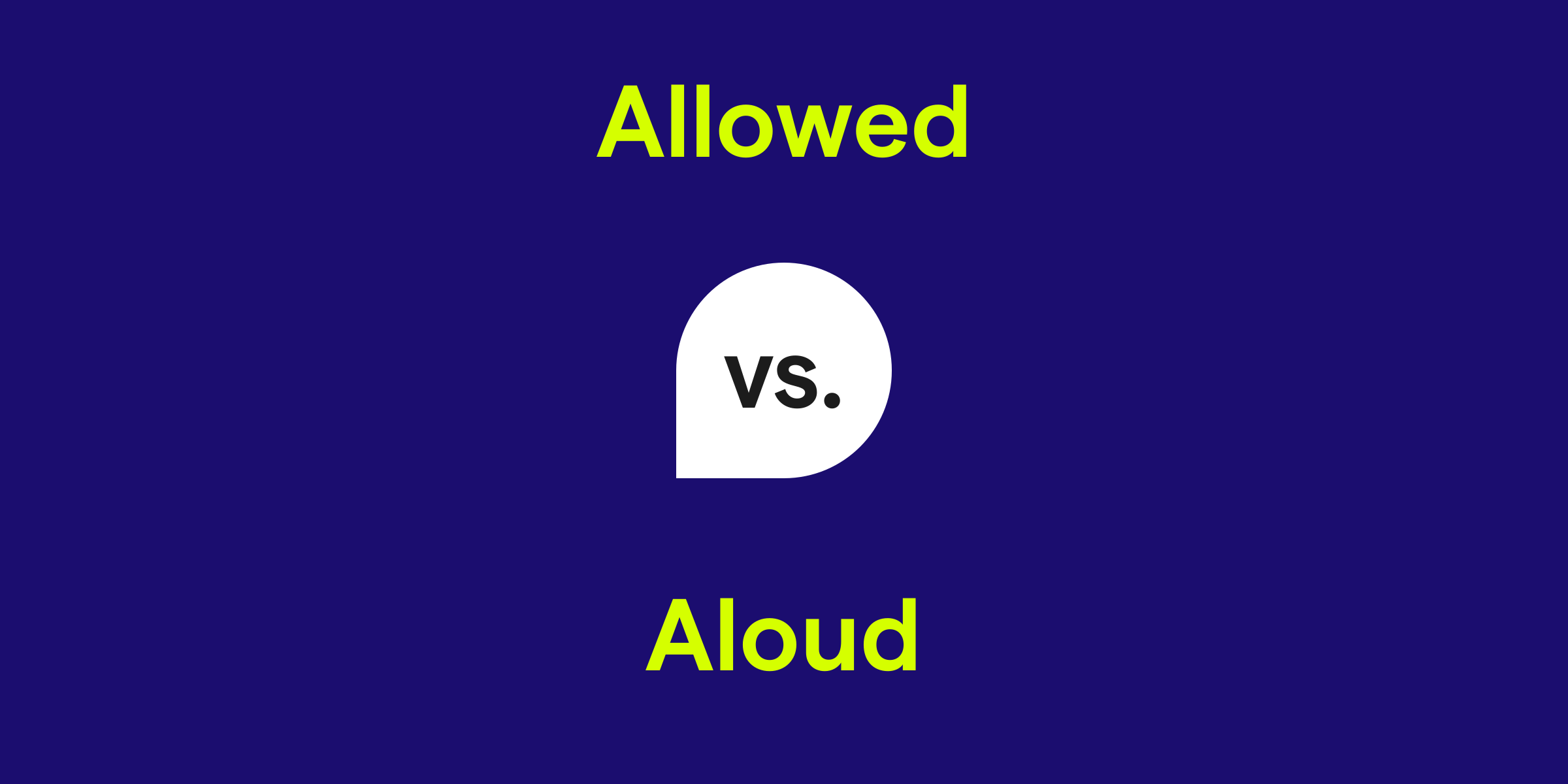Allowed vs. Aloud: What's the Difference?
The words allowed and aloud may sound similar, but they have different meanings and uses. Allowed refers to having permission or being permitted to do something. Aloud, on the other hand, means speaking in a voice that can be heard, not whispered or silent. Understanding the context in which each word is used is essential for correct application in writing and speech.

How do you use the word allowed in a sentence?
The term allowed is often used when describing permission or authorization. It's applicable in legal, social, and personal contexts, indicating that an action is permissible according to a set of rules or authority. When in doubt, consider if what you describe involves some form of consent; if so, allowed is likely the correct choice.
Examples of allowed in a sentence
- The students were allowed to leave early after completing their exams.
- You are not allowed to park in this area during business hours.
- Photos were allowed at the exhibition, but flash photography was prohibited.
How do you use the word aloud in a sentence?
Aloud is used when referencing the volume at which words are spoken or read. This term directly relates to sound and being heard by others. It is the right choice when illustrating the act of speaking so that others can hear, as opposed to silently or under one's breath.
Examples of aloud in a sentence
- The teacher asked the students to read their stories aloud to the class.
- She laughed aloud at the joke, unable to contain her amusement.
- Thinking aloud, the detective worked through the puzzle, voicing each step of his logic.
Allowed and aloud definition, parts of speech, and pronunciation
Allowed definition:
Allowed is typically used as the past tense of the verb 'allow,' meaning to give permission for someone to do something or for something to happen.
Allowed parts of speech:
Allowed pronunciation:
Allowed is pronounced as /əˈlaʊd/.
Aloud definition:
Aloud is an adverb used to describe the action of speaking in a way that can be clearly heard; not silently or in a manner that is difficult to hear.
Aloud parts of speech:
Aloud pronunciation:
Aloud is pronounced as /əˈlaʊd/, the same as allowed, causing potential confusion in spoken language.
Allowed is typically used as the past tense of the verb 'allow,' meaning to give permission for someone to do something or for something to happen.
Allowed parts of speech:
- As a verb: Parents often allow their children a treat after dinner.
- As an adjective (in the form 'allowable'): The allowable expenses for the business trip include hotel and meal costs.
Allowed pronunciation:
Allowed is pronounced as /əˈlaʊd/.
Aloud definition:
Aloud is an adverb used to describe the action of speaking in a way that can be clearly heard; not silently or in a manner that is difficult to hear.
Aloud parts of speech:
- As an adverb: The crowd cheered aloud when the winning goal was scored.
- There is no common use of aloud as another part of speech, as it solely functions as an adverb.
Aloud pronunciation:
Aloud is pronounced as /əˈlaʊd/, the same as allowed, causing potential confusion in spoken language.
Allowed vs. aloud in a nutshell
Allowed and aloud are homophones that differ substantially in meaning but share a pronunciation. Allowed relates to permission and permissibility within a set of rules or by an authority figure, while aloud speaks to the act of vocalizing words so they can be heard. The distinction between the two is crucial for clear communication, ensuring that the right word is used to convey the intended message in every instance.
Get AI Writing Assistance Wherever You Type
Make sure your vocabulary is on point and every punctuation mark is in the right place, no matter where you’re working. Grammarly works across more than 1 million websites and apps so you can improve your writing without copying, pasting, or breaking focus.

More Commonly Confused Words
Interest piqued? Pore (not pour) over other commonly confused words to help your writing reach peak (not peek) performance.